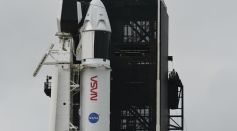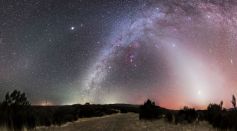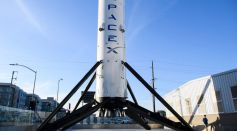SPACE

SpaceX: How Did Falcon 9 Rocket Dominate Space After 8 Missions?
SpaceX Successfully Lands Falcon 9 Rocket in Florida as Seen in Awesome Tracking Cam Video
Hubble Telescope Broken: Why Did It Have to be Repaired? Is Its End Near?
Is This $2.2 Billion Radio Telescope Facing Threat from Starlink Satellite Constellations?
Earth Faces First X Class Flare for Solar Cycle 25; Here's What It Means
SpaceX Rolls Out 'Super Heavy' Booster to Launch Pad; Prepares to Test Giant New Rocket for the First Time
Mercury Explained: Understanding Its Iron Core and the Sun's Magnetism
Hubble Space Telescope Captures Brilliant Star Cluster Despite Being in Safe Mode
Japan's Journey to Conquering Space: The Land of the Rising Sun Eyes Future Lunar Missions

Skywatching Venus, Milky Way: NASA Shares 2 Exciting Tips to Have the Best Glimpse

SpaceX Adding Glass Dome on Crew Dragon's Toilet for 360 Views of Space
Junked Starlink Satellite, Falcon 9 Rocket Debris Threatens Russian Space Station Cargo Ship

Did UAE's Hope Mars Orbiter Just See Aurora Lights on Red Planet?

Oldest Person on Blue Origin: 82-Year-Old Wally Funk Will Go to Space With Jeff Bezos; Who is She?
Most Popular

Memory and Learning: How the Brain Stores, Retrieves, and Forgets Information

Gut Microbiome 101: How Gut Bacteria Influence Immunity, Mood, and Metabolism

The Strongest Tornadoes Ever Recorded: Scientific Breakdown of Extreme Tornado Events

Antibiotic Resistance: How It Develops and Why Misuse of Antibiotics Is Dangerous




